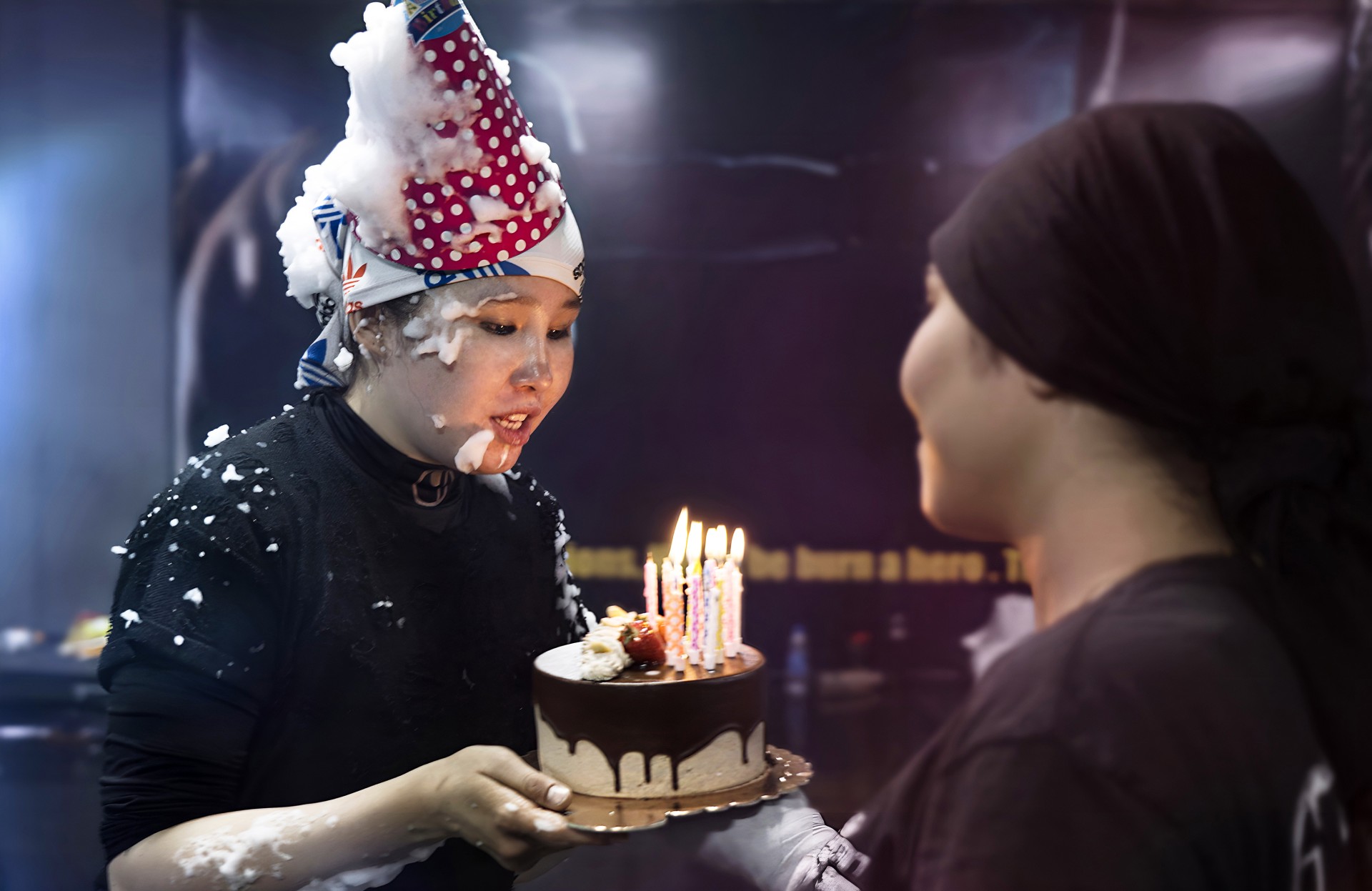Berlinale Generation has always been a platform for groundbreaking narratives, and this year is no exception. Among the diverse array of films screened, Maydegol, directed by Sarvenaz Alambeigi, stands out as a powerful testament to the resilience of Generation Z in the Middle East.
Maydegol follows the journey of an Afghan teenage girl living in Iran, grappling with her immigrant identity and her dreams of becoming a professional Muay Thai boxer. Despite facing familial opposition, societal prejudice, and physical abuse, she relentlessly pursues her passion, using the sport as a means to transcend her circumstances and assert her identity.
In this documentary, Sarvenaz Alambeigi delves into the complexities of identity and belonging. Through the lens of her protagonist, she explores themes of resilience, self-discovery, and the universal struggle for acceptance in a world rife with prejudice and injustice.
During the Q&A session, Alambeigi discussed the strong bond she developed with her subjects during the three and a half years of filming. By openly sharing her own challenges and vulnerabilities, she cultivated trust and a deeper connection, enriching the filmmaker-subject relationship.
One of the film’s standout characters, Mohadesseh, articulates the struggle of navigating identity and belonging in a society plagued by violence and discrimination. Her question, “How come in some countries fathers give their children a kiss and we get a kick?” encapsulates the heart of the film’s exploration of domestic violence and the quest for identity.
One particularly captivating scene in the film depicts Afghan and Iranian teenage girls engaging in a heartfelt conversation around a table. As they discuss the challenges facing girls, particularly in pursuing athletic endeavors, they openly ponder who faces greater obstacles: Iranians or Afghans. This scene is not only remarkable for its candidness but also for the sense of camaraderie and empathy that permeates the discussion.
Despite being born and raised in Iran, Maydegol faces hurdles in obtaining official recognition due to her immigrant status. Her desire to thrive in her adopted homeland clashes with the reality of systemic barriers, prompting her to consider representing Afghanistan in sports; a decision that leads to nowhere due to the restoration of the Islamic Emirate in 2021.
While waiting for the film to start, I chatted with a young Afghan man, sharing snacks and conversing in Farsi, our common language. This simple exchange highlighted the potential for meaningful connections in unexpected places. It made me ponder the broader impact of such interactions and where else they might occur.
As Maydegol makes its mark on the Berlinale Generation 14plus section, it serves as a reminder of the importance of empathy, understanding, and solidarity in the face of adversity. It’s a film that challenges us to confront our biases, question societal norms, and stand in solidarity with those who refuse to be silenced.
The connection between the viewers and the portrayed subjects was palpable, creating a sense of shared understanding and compassion. In the end, I couldn’t help but wish the girls could be present to experience the admiration in the room, to witness firsthand the impact of their stories on those who watched.
